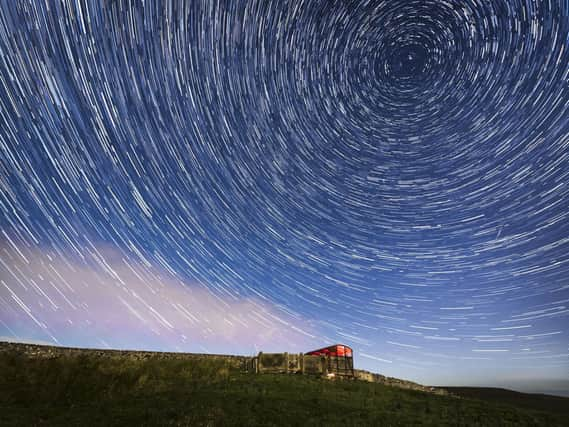Eta Aquariids set to dazzle Yorkshire night skies with up to 50 meteors per hour


The Eta Aquariid meteor shower is expected to peak on the night of Wednesday, May 5, with up to 50 meteors per hour, and will be visible until the early morning of Thursday, May 6.
This celestial display is associated with the Halley's Comet officially designated 1P/Halley, which orbits the sun once every 76 years.
Advertisement
Hide AdAdvertisement
Hide AdAnna Ross, an astronomer at the Royal Observatory in Greenwich, told the PA news agency: "As both the Earth and Halley's Comet have elliptical orbits around the Sun, these two intersect twice per year.
"This causes not only the Eta Aquariids but also the Orionids meteor shower in October."
The Eta Aquariids takes its name from the constellation of Aquarius in the southern hemisphere, where the shooting stars appear to originate from.
Meteoroids from Halley's Comet strike the Earth's atmosphere at an approximate speed of 150,000 miles per hour (240,000kph), burning up in the process.
Advertisement
Hide AdAdvertisement
Hide AdWhile the Eta Aquariids is active from late April to near the end of May, Ms Ross said the best time to see it will be at dawn on May 6.
Ms Ross told PA: "The meteor shower is visible from the 19th of April until the 28th of May this year with the best night to view the shower being the night of the 5th-6th of May, when up to
50 meteors per hour will be visible.
"However, this is a trickier one to spot as, despite meteors being visible all over the sky, the radiant (the easiest region to see them) will be only rising in the early hours of the morning here in the UK."
She advises getting far away from all artificial lights to increase the chances of catching a glimpse of the shooting stars on a moonlit night.
Advertisement
Hide AdAdvertisement
Hide AdMs Ross said: "For the best chances to spot the Eta Aquariids find a dark area of clear sky and allow around 20 minutes to let your eyes adapt to the dark.
"It may also be advisable to lie down as you may be looking up for a long time."